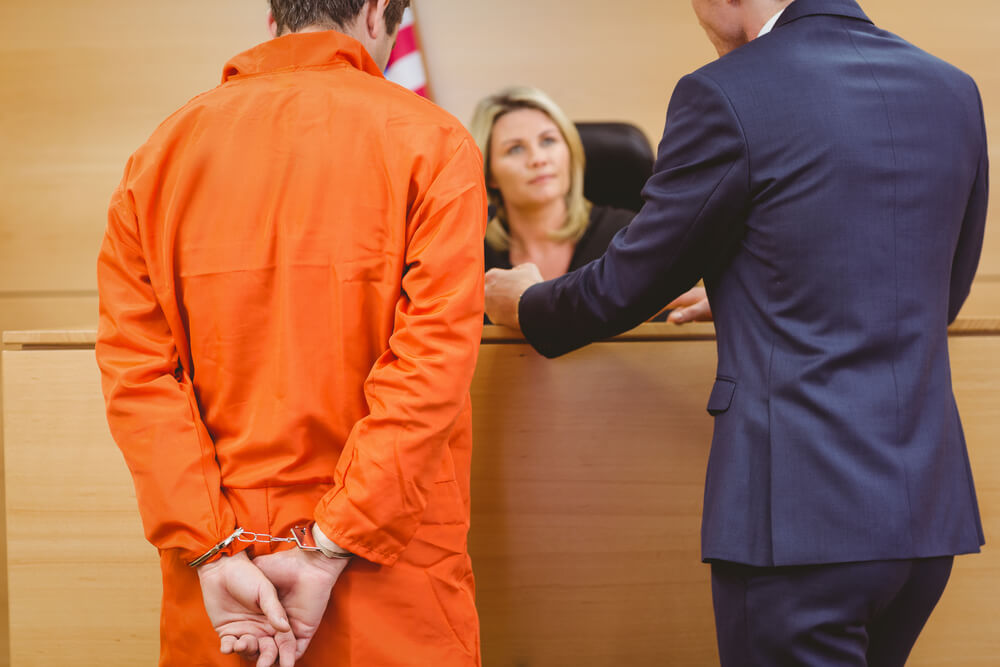Adults in the criminal justice system have had the right to due process of law since the constitution was ratified, but our history with juvenile due process is much shorter and shakier.
Today, many juveniles struggle to gain access to proper legal counsel, amid other rights due to them by the court system.
Due process for juveniles: A brief (and problematic) history
Juveniles were first tried separately from adults in Illinois in 1899 when the first juvenile court was established. The rest of the states followed and established their own juvenile court systems, and all but two states had separate systems by 1925.
The purpose of creating separate systems was to place more emphasis on rehabilitation, based on the idea that juveniles had a better chance of correcting their lives than adults. In order to allow for many different types of rehabilitation and education, judges were given lots of discretion to try juveniles using the input of social workers and behavioral scientists. Attorneys were not used.
However, because the system didn’t follow the same rules as the criminal justice system, it had a ton of problems. Between the 1930s and ‘60s, research emerged that showed that juvenile court judges often lacked proper training, that probation officers were undertrained and overloaded with cases, that children were still being housed in adult facilities and that the juvenile correctional facilities themselves were overcrowded and full of violence.
[postquote]
And, because juveniles did not have the same rights to due process, they could not challenge any of these issues. They were denied any legal counsel, public adjudications or jury adjudications. They did not have immunity against incriminating themselves and they could be convicted on hearsay testimony or by only a preponderance of the evidence.
In the ‘60s, things began to change. The Supreme Court stated that juveniles were getting the “worst of both worlds” because they were not being granted the rights of adults nor were they actually being given different levels of rehabilitation.
The Court granted juveniles the right to legal counsel as well as the right to notice of their charges and the privilege against self-incrimination. It also raised the evidence requirement to “beyond a reasonable doubt.”
However, juveniles were not given the right to a trial by jury, which still left judges more discretion than in proceedings for adult offenders.
Problematic juvenile due process today: A lack of legal counsel
There are issues with juvenile due process during the entire court process, but the primary issue is a lack of counsel that leads to them not having reasonable access to their rights.
Despite the constitutional requirements, studies were showing as early as the ‘80s that juveniles around the country often do not have adequate legal representation. One survey of six states in 1987 found that three of the states reported that less than 50 percent of juveniles charged with delinquency had legal counsel. The lack of legal counsel was attributed to parent’s reluctance to get an attorney, inadequate public defenders and judicial ambivalence.
Today, many courts are still ignoring juveniles’ right to an attorney.
Even when juveniles do get legal representation, the process is still flawed. One of the issues is that a common practice is to wait to appoint an attorney until after a juvenile is arrested, questioned and detained. This denies juveniles the right to understand their charges and their defense until after they are detained and facing a sentence.
And, in some jurisdictions, it’s possible for a prosecutor to offer a plea deal to a juvenile before they have an attorney. This causes many juveniles to plead guilty before getting legal advice.
Another large piece of the issue is that juveniles are offered the chance to waive their right to an attorney, which many take before fully understanding the ramifications. Law enforcement may offer the waiver without communicating what it means to the juvenile. Meanwhile, even when juveniles do receive an attorney, many juvenile justice attorneys are overloaded with cases and do not have enough time to spend with their clients.
Solutions
Some of the main reasons that courts do not place enough importance and emphasis on getting juveniles proper legal counsel is that they do not have the resources.
So, the issue cannot be fully addressed without looking at the number of juvenile justice public defenders around the country. Every juvenile has the absolute right to an attorney, and the discrepancy between adult and juvenile courts must be corrected.
But, the courts that do have enough attorneys need to be further regulated in their application of juvenile constitutional rights to an attorney. For the process to truly be fair, the attorneys need to see the juveniles and offer them the right to waive their legal counsel directly. This would eliminate any scare tactics, pressures or other tactics by law enforcement to get juveniles to waive their rights.
Further, prosecutors should not be allowed to offer plea deals until after a juvenile has seeked legal counsel.
Our take
Every juvenile has the right to due process, and this due process cannot happen for juveniles unless they have access to an attorney every step of the way.
Many juveniles lack parental guidance and most others will not be equipped with the knowledge to navigate the complicated legal proceedings. So, they need attorney guidance immediately after they are arrested, during their sentencing hearing, and while they are reviewing plea deals.
It simply is not fair to juveniles to deny them legal representation at any part of the process when they are ill-equipped to make decisions that will affect them for the rest of their lives.
Have something to add to this story? Comment below or join the discussion on Facebook.
Header image: Shutterstock









































